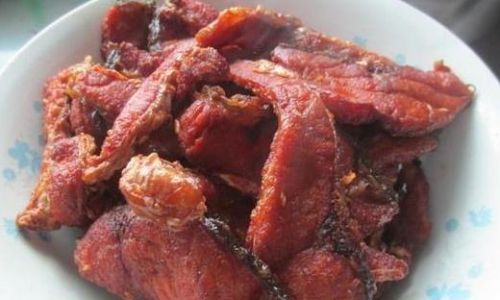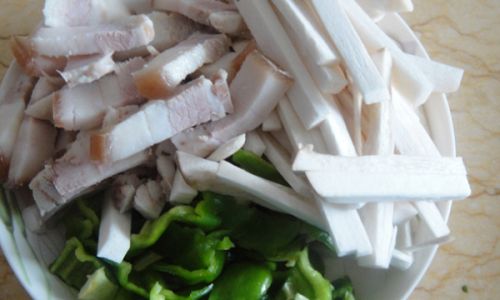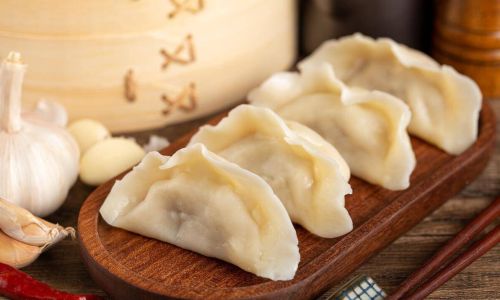Deep-fried fish, often referred to as “explosive fish” (a term used metaphorically to describe its delightful crunch and burst of flavors upon biting into it), is a culinary delight enjoyed across various cultures. Whether it’s a festive occasion, a family dinner, or a simple weekday meal, this dish never fails to impress with its golden crust and tender, flavorful interior. In this comprehensive guide, we’ll delve into the intricacies of making perfect deep-fried fish, focusing on techniques, ingredient selection, and tips to ensure your explosive fish is a resounding success.

Ingredient Selection: The Foundation of Greatness
Before diving into the cooking process, let’s discuss the essential ingredients. The quality of your fish is paramount. For deep-frying, firm-fleshed fish species such as cod, haddock, halibut, or catfish are ideal. These fish hold up well to the high heat, maintaining their shape and texture.
Fish:
- Choose fresh fish with firm, moist flesh and a clean scent. Avoid fish with a strong odor or slimy texture.
- Fillets are convenient, but whole fish can also be used if you prefer a more rustic presentation.
Coating:
- For the crispiest exterior, a combination of flour, cornstarch, and baking powder works wonders. Cornstarch enhances crispiness, while baking powder helps create a light, airy texture.
- Seasonings such as salt, pepper, garlic powder, and paprika add depth to the flavor profile.
Oil:
- Neutral oils like canola, peanut, or grapeseed are best for deep-frying as they have a high smoke point and neutral flavor, allowing the fish’s natural taste to shine.
- Avoid olive oil or butter, which have lower smoke points and can impart unwanted flavors.
Preparation: Setting the Stage for Success
Proper preparation is key to achieving that perfect golden crust and moist interior. Here’s how to get started:
-
Pat Dry: Thoroughly pat the fish fillets or whole fish dry with paper towels. Moisture can cause the oil to splatter and prevent the coating from adhering properly.
-
Season: Season the fish generously with salt and pepper. You can also add other spices like garlic powder, paprika, or even a dash of cayenne for a bit of heat. Let the fish sit for at least 15 minutes to allow the seasoning to penetrate the flesh.
-
Coating Mixture: In a shallow dish, combine equal parts flour, cornstarch, and a small amount of baking powder. Mix well to ensure an even distribution. Season the mixture lightly with additional salt and pepper.
-
Dredging: Dredge each piece of fish in the coating mixture, shaking off any excess. For an extra-crispy layer, you can dip the fish in beaten egg or milk first, but this step is optional.
-
Resting: Place the coated fish on a wire rack set over a baking sheet. This allows any excess coating to fall off and ensures the fish isn’t sitting in its own moisture, which can lead to soggy results.
The Frying Process: The Heart of the Matter
Now, it’s time to heat up the oil and get frying. This is where the magic happens.
-
Heating the Oil: Pour enough oil into a deep, heavy-bottomed pot or fryer to fully submerge the fish. Heat the oil to 350-375°F (175-190°C). Use a thermometer to monitor the temperature accurately.

-
Testing the Oil: Before adding the fish, drop a small pinch of coating mixture into the oil. If it sizzles and rises to the surface quickly, the oil is ready.
-
Frying: Carefully lower the fish into the hot oil using tongs or a slotted spoon. Avoid overcrowding the pot, as this will lower the oil temperature and result in greasy fish. Fry in batches if necessary.
-
Timing: Cook the fish until it’s golden brown and crispy, about 3-5 minutes per side, depending on thickness. Use tongs to gently flip the fish halfway through cooking.
-
Draining: Once done, remove the fish from the oil and let it drain on a wire rack or paper towels to remove any excess oil.
Elevating Your Dish: Garnishes and Accompaniments
While the fish itself is the star, a few well-chosen garnishes and accompaniments can elevate your dish to new heights.
-
Lemon Wedges: A squeeze of fresh lemon juice adds brightness and cuts through the richness of the fried fish.
-
Herbs: Fresh parsley, dill, or cilantro can be sprinkled over the fish for a burst of fresh flavor.
-
Tartar Sauce: A classic accompaniment, tartar sauce pairs perfectly with fried fish. It’s easy to make at home by mixing mayonnaise, pickles, capers, mustard, lemon juice, and herbs.
-
Slaw: A refreshing cabbage slaw or even a simple green salad can balance the meal and make it more filling.
-
Dipping Sauces: Consider offering a variety of dipping sauces such as soy sauce, sweet chili sauce, or even a spicy mayo for added flavor dimensions.
Tips for Perfect Deep-Fried Fish
- Temperature Control: Maintaining the correct oil temperature is crucial. Too low will result in soggy fish, and too high can burn the exterior before the interior is cooked.
- Don’t Overcrowd: Frying in small batches ensures even cooking and a crispier exterior.
- Resting Period: Allowing the fish to rest after coating helps the coating set and ensures a better adherence.
- Freshness Matters: Always use fresh fish for the best flavor and texture.
- Safety First: When deep-frying, always keep a lid nearby to cover the pot if the oil starts to splatter excessively. Wear long sleeves and an apron to protect yourself from hot oil.
Conclusion: A Culinary Journey
Making deep-fried explosive fish is not just about following a recipe; it’s a culinary journey that involves understanding your ingredients, mastering techniques, and experimenting with flavors. With the right tools, ingredients, and techniques, you can transform a simple piece of fish into a mouthwatering masterpiece that will delight your family and friends. So, gather your ingredients, heat up the oil, and embark on this delicious adventure. Your taste buds are in for a treat!






0 comments